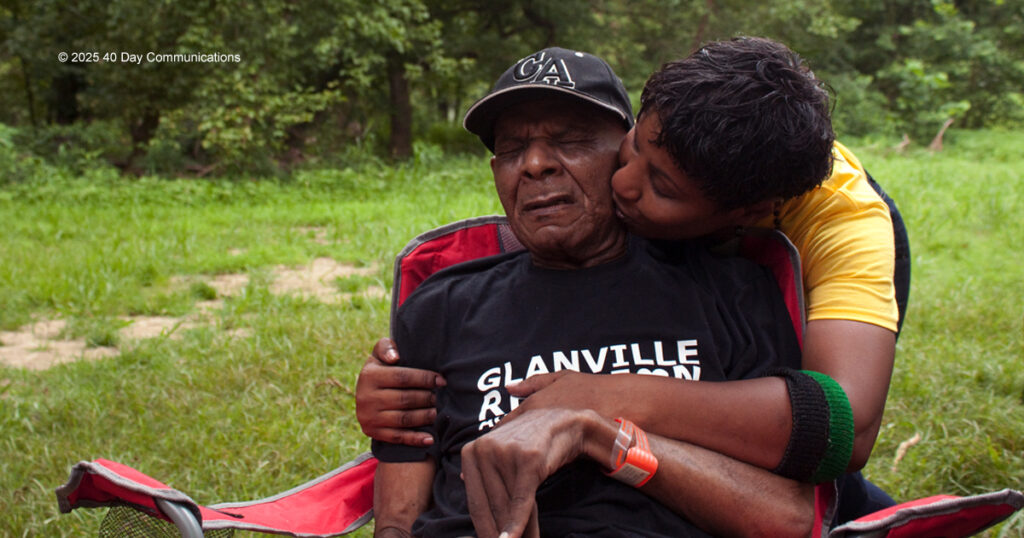Ten Years Without My father
It’s hard to admit that it’s been ten years since my father passed away. I still can’t quite believe I’ve lived this long without him. Honestly, I wasn’t sure I’d even survive the first ten days. The pain was so deep, so disorienting, that time itself felt suspended. Yet somehow, slowly, I’ve learned to carry the grief. Not “get over it,” because that’s not my understanding of how grief works, but I have come to live with it. Breathe through it. Like a wounded tree, compartmentalize the pain and grow around it. It was while writing this post that I realized I didn’t remember the actual date. I had to find his obituary to make sure that I was using the correct date. Wow, had I really suppressed even the day?
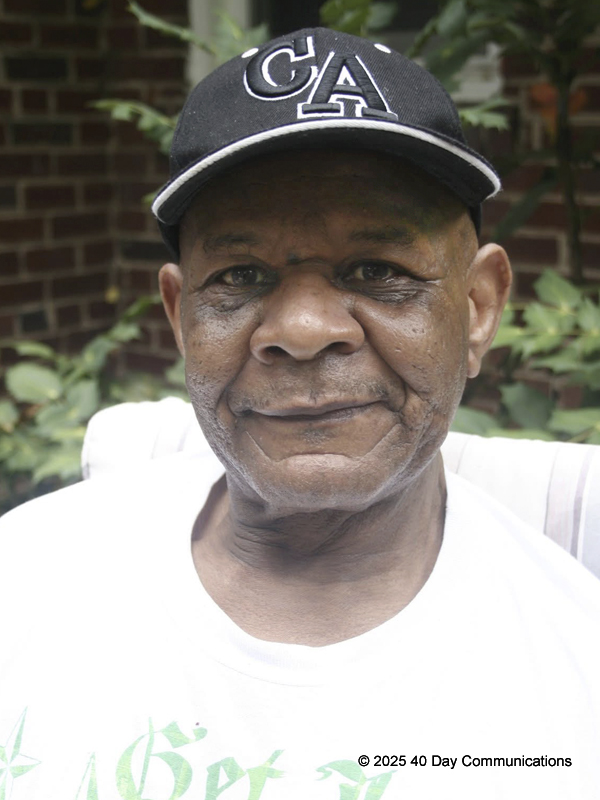
My father, Clarence Glanville, was born to Jamaican farmers and raised on the land, where hard work wasn’t a virtue, it was a way of life. He carried that same work ethic into adulthood, eventually becoming a taxi cab driver and operating his own taxi company back in Jamaica. With quiet determination and discipline, he saved enough money to legally immigrate to the United States. Hard work and his bartender savings gave him an opportunity to send for me, my sisters and my Mom. After a couple years of separation, we were all safe and back together again, legally home in the land of opportunity! He didn’t ask much for himself, he just wanted the best for us. That was the kind of man he was: never flashy, always focused. He didn’t just dream of a better life; he built one, brick by brick, mile by mile.

Nonetheless, he passed away on March 8, 2015. We had a small ceremony for him here in the United States, but his wishes were to be buried in our Jamaican homeland, next to his mother. Because of immigration issues at the time, I wasn’t able to attend his funeral or burial. For the first time in my life, I didn’t know where my father was and, even today, I still don’t. For years, his absence terrorized me, while closure tormented and eluded. My father was the type of man who showed up ready to provide every single day, who went to work and came home every night. He didn’t sugar coat things, he taught the harsh realities of life but with a certain gentleness that made it easy to swallow. To suddenly lose not only his unconditional love and guidance, but also the chance to say a final goodbye or visit his resting place… it was like salt on an already open wound.
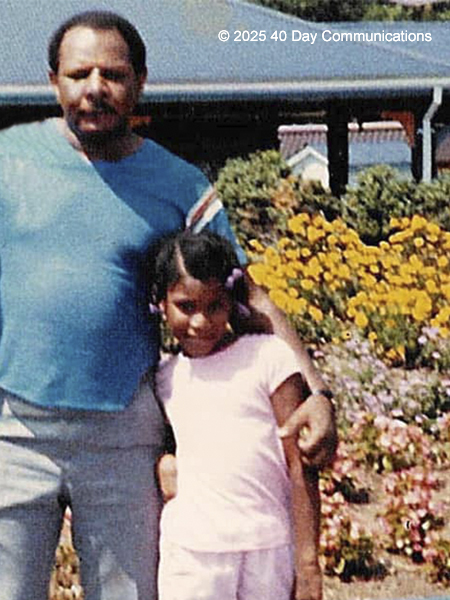
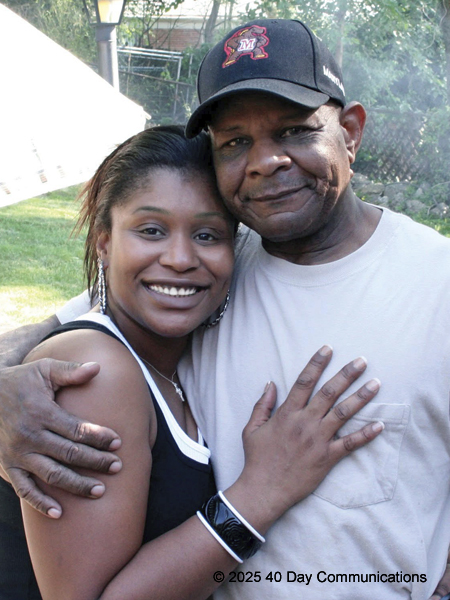
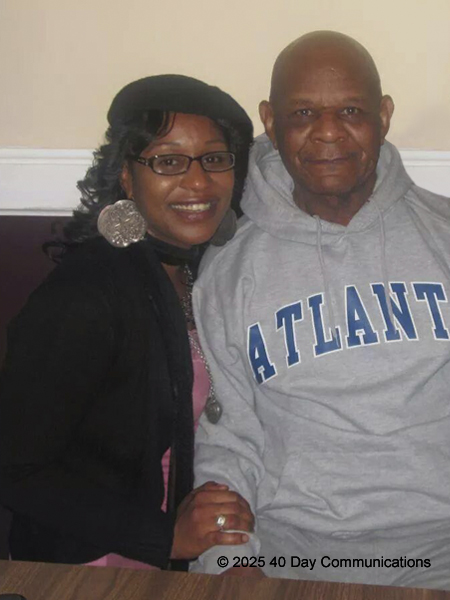
The Caregiver Chapter
In many ways, these ten years of learning to live without my father have felt heavier than the seven years spent as one of his caregivers, watching his body decline from Corticobasal Degeneration (CBD)—a rare form of Parkinson’s disease. I still remember the day the doctor to us that he had approximately five years to live.
We had just got in the car, putting on our seat belts and my father whispered, “I have an expiration date, baby girl.” It was the first time I saw him cry. It was just a few tears and he acted as if they meant nothing, but his tears hit me like a wave. For me, my father was the epitome of “strength” and it had nothing to do with size or anything physical. He was a slender man, about 180 pounds and maybe 6’3″ tall, but he was a disciplined man with strong morals and standards. He always knew what to do, when to do it and how to do it the right way. He pushed for excellence, but it wasn’t all about perfection with him, forgiveness was possible and it came easy.
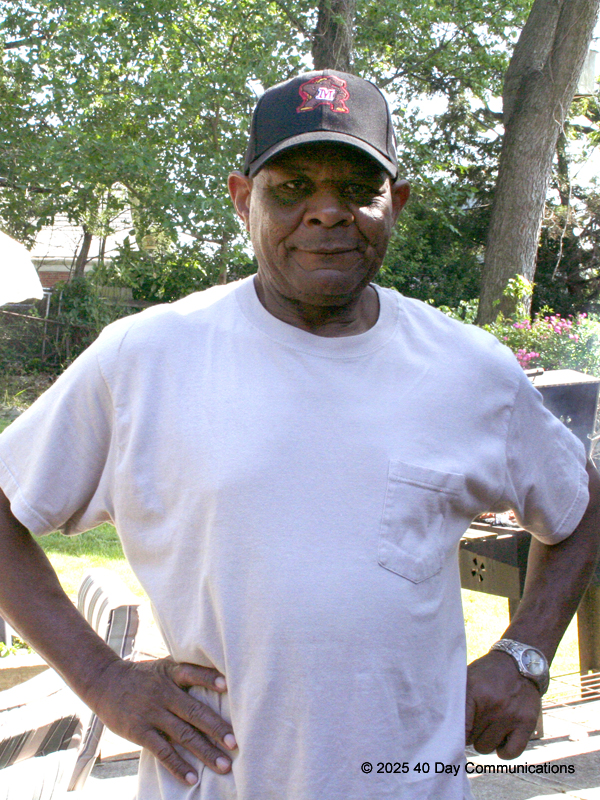
With him it was more about holding yourself accountable and knowing how to make amends when you were wrong. He ruled with a calm, reliable firmness, always encouraging me to strive for the best, so it was crushing to see him full of despair, hurt and forced to accept defeat. No matter the cost, I had to help him fight death and my mind was stuck in a loop, ready to take action, yet unable to move; if doctors couldn’t do anything with all their knowledge and technology, what could I do? I never felt more helpless in my life. To turn on the radio felt like a waste of energy so I didn’t even bother. Like a computer set on autopilot, I just drove and we wept the ride home, hiding tears from each other, together in silence.
From that day, I did everything I could to help him “beat the odds.” I took him to all his doctor’s appointments, every second, third and fourth opinion. We prayed together almost daily, sang songs from his favorite hymnal, the Redemption Song Book, believing and holding on for the miracle. One day he looked at me with big, wishful eyes and told me that he wanted to start going to church. I was shocked and looked back at him like, “nooo, whyyyy, ugghhh?!” I didn’t even own a dress suitable for church, nor he a suit and we both laughed! At the time, neither of us considered ourselves to be “church going” people, but he said, “I’ll buy the clothes, if you’ll take me.” Of course I took him and we actually ended up getting baptized together in the summer of 2011. That moment remains a high point of my life and I still feel like God used my father to break through to me because, honestly, I wasn’t really feeling Him much those days.
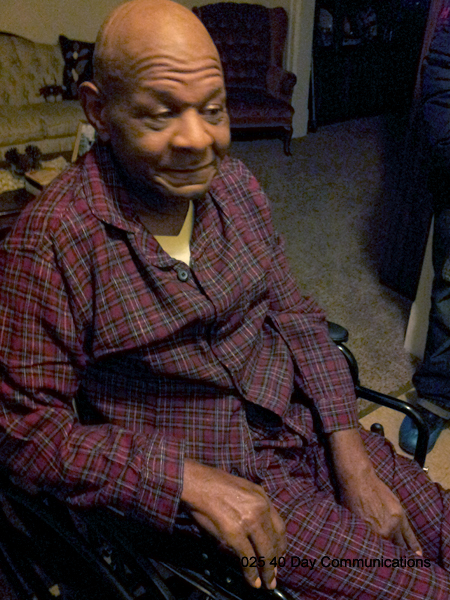
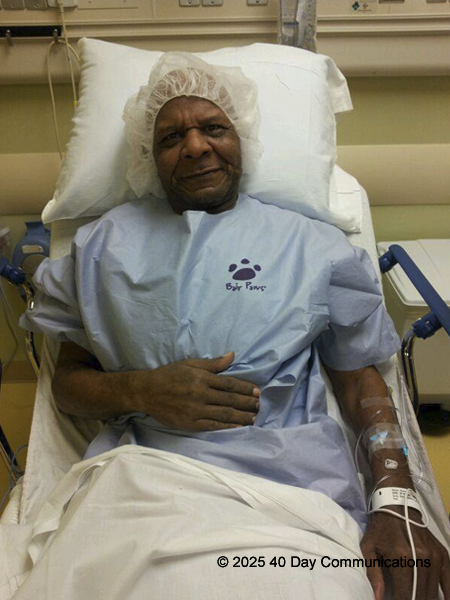
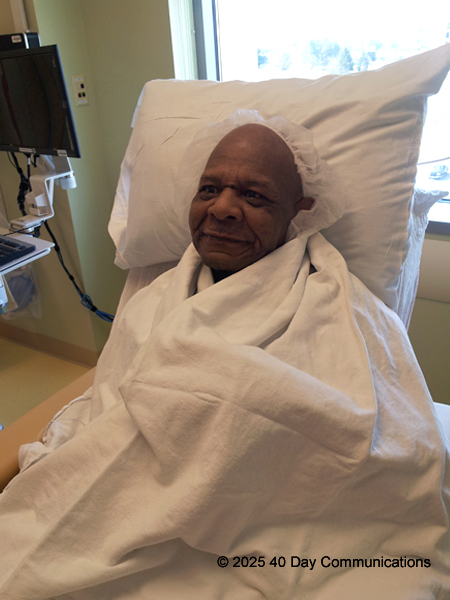
As CBD progressed, he needed more and more help. He went from only needing a cane to a walker. Soon the wheelchair was delivered and I knew he hated it because he just stared at it, “It’s fine Dad, I’ll be your legs, don’t worry.” He didn’t really have a choice then, nor when he eventually became bedridden. My Mom and the home health aides did their best to care for him. I had the evening shift and weekends, balancing caregiving with a full-time job, giving up nearly all social plans and pouring myself into making his life as comfortable and dignified as possible. He used to say, “God’s going to give me a testimony. He’s going to let me walk again.” I truly believed in that, but it was wishful thinking as the healing we hoped for never came and Dad died within five years, just as his neurologist projected.
Caregiving is a term that, in my opinion, needs revision because it only states part of the process. If caregiving only involved feeding him, making sure he was clean and taking all his medications, then the term would be justifiable and certainly easy enough to do. But in order to be a caregiver, it means you have to physically be there to provide care. To physically be there means you also have no choice but to watch as someone you love steadily deteriorates and die. it’s a part of the caregiving process that needs recognition too because it’s not just providing care for someone who needs it, it’s also grin-and-bear it trauma for the person providing the care.
There were days when I just wanted to have a tantrum, screaming and crying like a two-year-old, but his care was more important than how I felt. I couldn’t let my father see me break because that would break his spirit. I intentionally kept on my positive face so I could give him reassurance that it’s going to be alright, while hiding the fact that small bits of me was dying just as he was. It was a daily torment and I grieved the loss of my father even before his body gave up. Each day putting on a smile for him, while inside I screamed in agony, helpless on the sidelines as he morphed from a strong, able-bodied, independent individual to someone stuck in a fetal position needing help to simply scratch his nose if it itched. For me, that’s the hardest part of caregiving and I’d do it again, without a doubt, if I had to. But I’d be lying to you and myself if I didn’t mention that watching my father’s lifeforce literally drain from his body perpetually damaged something in my thought processing, far more than caring for him did.
When the Caregiving Ends
The morning I received the call that he died, I drove to my parents’ house in a daze. I remember nothing about that drive, just the sensation of holding the steering wheel. When I got there I fell on his chest and cried the hardest I’ve cried in my life. His eyes were slightly open, but I could feel that his spirit had left and even then, I was still stuck in caregiver mode. I instantly grabbed the razor and gave him a shave. After that, I had to trim his nails. By the time I got to his second hand, his body was even cooler, but it still didn’t hit me. Two men from the funeral home came to bring him out of the house and after a short stand-off they finally gave me the body bag. I wasn’t trying to be difficult, but I just felt like someone who loved him should be the one to do it. I had maneuvered him on the bed many times during the time he was bedridden, but nothing could prepare me for the experience of putting my father in that body bag. The bag itself has its own energy, a certain heaviness, but even with his body inside, it felt so light to me. If I hadn’t put his body inside and zipped it myself, I would’ve never believed that the body of a full-grown man was in it. It’s like time stood still as my son and I brought my father’s body outside, into the back of the first call vehicle and watched them drive away with him. That’s when it hit me, life with my father had officially ended. It was ground zero in my battle with grief, day one of Life AD.
I thought the first few days would be hard, but the first six months after his death were the worst. Sure, I carried out his final wishes as power of attorney, he was my Dad and I promised him that I would. But he was also my best friend and one of the only people I felt truly understood me. I loved him so deeply and lost him so fully that it shattered my sense of reality. He worked all his life to acquire the little he had and to just divide it all and hand it off corrupted my programming. What’s the purpose of chasing money down if we’re just going to die and leave it all behind? I know that I need it to survive, but my desire for acquiring wealth went from a full-on-run to barely a trot. I didn’t even see happiness or the concept of joy the same anymore. Years of caregiving caused me to structure my entire life around my father, my priorities were recalibrated and materialistic things seemed so shallow now without an anchor, I was left floating in sorrow without a sense of self. All I could do was cry: in bathrooms at work, in my car, at night in bed, basically any time I was alone or felt like no one could see me. I was frozen, numb, angry, overwhelmed, abandoned and hollow.
The Silent Isolation of Grief
Instead of living, life became more about just getting through each day with as little interaction as possible. I stayed busy because every time I stopped, I’d be flooded with memories and thoughts. Sometimes it felt like my heart was literally going to explode. So, to avoid falling apart, I mentally dug a deep hole and buried myself in it. I’d come out to go to work and my son was still a teenager so I couldn’t fully eject. But it was extremely hard to function. Grief made me quiet. Something about watching the strongest person I knew succumb to death took away my sense of assurance. If Dad couldn’t beat it, no one can.
We all know that we have to die one day, but the innocence of life had been replaced with the reality of death, its inappropriate timing and its relentless hold. As much as I wanted to be the same fun, light-hearted person I used to be, I just couldn’t. My family seemed to adjust faster and I guess they assumed I’d return to normal in time. Losing Dad was a huge blow to our family and if everybody else can pick up the pieces and move on, so should I. The expectation was for us to stay strong and hold it together, so I didn’t feel supported in my grief, instead I felt shamed for taking so long to bounce back. I tried, but I just couldn’t, inside do it. I needed more time, I was unraveling. I grieved not just the man—but the memories we never got to make. The walk down the aisle. Shared Saturday afternoons. More of his wisdom. More time.
Each time I found footing, another wave of sorrow would knock me back down in my hole. Not long after, I lost the desire to talk to people. It wasn’t that I didn’t care anymore, I began to fear connection because in my mind, the more connections, the more opportunities for loss because they’ll eventually die too. I knew this wasn’t a healthy way of thinking and I couldn’t let myself just fade away. I had to try harder. I had to do something or grief was going to totally destroy me. That’s when I began praying, every morning, throughout the day and at night before bed. After months crying in prayer, I realized that even in the hole, God was with me. I was in a dark place by myself, but I wasn’t alone. Almost three years had passed and I felt like a shadow of the person I was before Dad got sick and died, but there had to be more to life. Even if I was different now, I had to make my way out of the hole and embrace the person I had become. So would everyone else.
The Wake-Up Call
Last year, something shifted. I developed tinnitus. If you don’t know what tinnitus is, it’s when you hear ringing, humming, buzzing or other sounds in your ears that aren’t coming from anything external. It’s like your ears are making noise even when it’s totally quiet. For some people, it’s a mild hum that comes and goes; for others, it can be loud and constant. Well, for me, it was an unrelenting, 24-7 high-pitched ringing in my ears. At first, I didn’t understand what was happening and it nearly drove me crazy. Honestly, there were nights when the ringing was so loud, I just wanted to end my life. But over time, with God’s help, I recognized it for what it was: a wake-up call. My body had been screaming for rest, for care, for healing.
Years of built-up stress, grief and burnout had finally manifested physically. I could no longer ignore it. That ringing became the catalyst to reclaim my health: mentally, emotionally and physically. I began to realize that healing had to become intentional. I couldn’t just power through anymore. I had to slow down, take inventory of my well-being and give myself permission to restore what was depleted.
A New Chapter in Life AD
In the past years, especially since that turning point, I’ve been slowly rebuilding. I still don’t talk about my father often because the tears are always close, but the pain isn’t as sharp. His memory no longer floods my every minute, but he’s still with me every day.
I got married a few years after he passed and my husband has been a grounding, loving force. Through everything, I’ve drawn closer to God, who has become my true source of strength. Our relationship is my anchor, especially on days when the grief still catches me off guard.
I’m also learning to welcome joy again, without guilt. I’ve returned to reading, writing in my journal and most recently, working on my urban farm and plant nursery. Diving deeper into horticulture and transforming my passion for gardening, from just a hobby into a legitimate business, has become a sanctuary. It’s given me purpose and peace. Through my studies in psychology and the human mind, I’m rediscovering what it means to live fully, not just function.
I’ll be 50 next year and for the first time in a long time, I feel hope. I actually “feel” like being a part of the world and living again. Not because grief is gone, but because I’m learning to carry it differently. With more grace. With more intention.
Closing the Chapter, Not the Book
Writing this post was one of the hardest things I’ve had to do in a long time and it took me quite some time to finish it. It probably took just as long for me to publish the draft. My mouse hovered over the “publish” button longer than I’d like to admit. Most of the people I know seem to enjoy weaponizing a person’s empathy, even worse, their vulnerabilities. But I posted it regardless of how those type of people will react to it. I needed to do this for me; this post is a part of my story. It’s MY therapy. Who knows, maybe it would be helpful even, to someone out there who’s been having a hard time dealing with loss and needs to know they’re not alone.
This post is for the silent grievers. The ones who smile until they’re alone and can finally cry without judgement. For those who were caregivers and now wonder who they are without that role. For anyone trying to find a new “normal” in the midst of loss.
This is my Life AD—After Dad. It’s not harder, it’s just different and I’ve come to accept that. My Father left a legacy that wasn’t about money or accolades, it was the way he cared. He showed me what unconditional love looks like: not by words alone, but by always being there, even when I messed up. He stayed, when others chose to walk away. He never judged me or turned his back. His eyes told me I was still worthy, even when I didn’t feel like I was. I’ll never get another chance to see that softness in his eyes, that could combat a million hard stares; nor will I feel “safe” again like when he was around. But I’m still here. And I’m choosing to live.
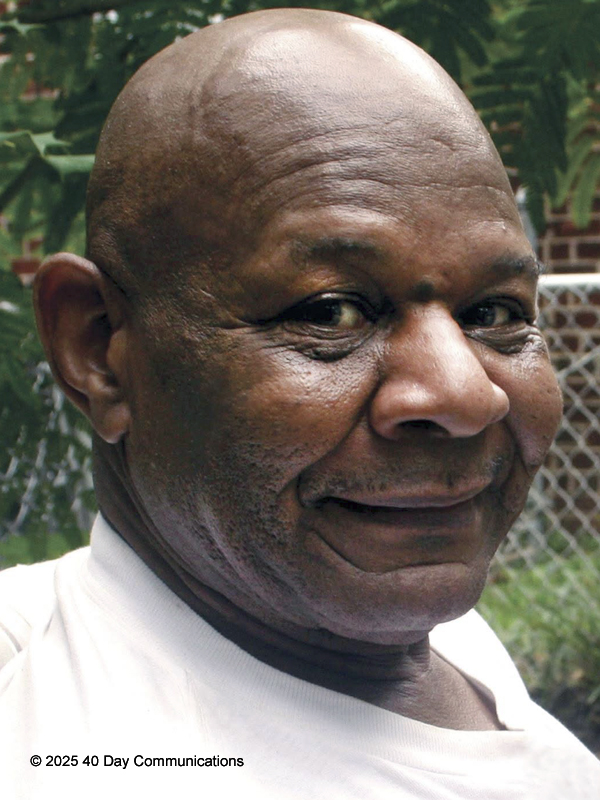
So for anyone who might ask, the answer is “no, I’ll never get over losing my Father.” There’s just too much connection as my Father actually “fathered” and nurtured me. I’m blessed to have had that experience because some people never receive that from their Fathers. I’ll also never be the same person I was before he got sick, but I’m ok with letting that person go. I’m strengthened by NOT chasing my old self, but by encouraging the new SELF to rise. Someone rooted in love, in wisdom, in hope and like my Father, cares deeply. His kind of care changes lives. It’s the kind of care that never dies. It’s the legacy he left me and the one I carry forward.
